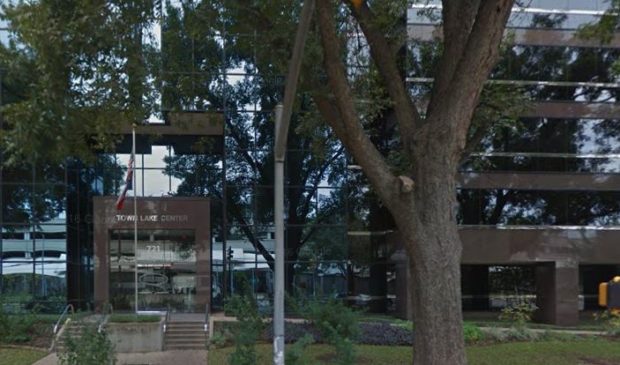Austin Energy employee accused of fraud found to be ‘not in violation’
Friday, January 11, 2019 by
Jessi Devenyns After three hours of discussion surrounding the definition of “intent” in application to fraud, the Ethics Review Commission found Curtis Graves, Austin Energy’s former superintendent of system operations, not in violation of city code by virtue of three votes.
“You are here accused of misrepresenting the hours you worked on your timesheet for gain,” Chair Ben Stratmann told the defendant. “In a very black-and-white context, I agree that was done.”
On Jan. 9, Graves came before the commission for a final hearing on the charge that he took 103.94 hours of sick and vacation leave but marked it as regular time on his timesheets, thereby costing the city $4,700 between March 8, 2016 and his retirement on March 31, 2017.
However, due to the nature of Graves’ job, the commission had trouble finding malicious intent behind his inconsistently filled-out timesheets. Commissioner Luis Soberon said that he could have misrepresented this “while he was robbing a convent,” but that that was not the case.
Even the Office of the City Auditor said, “We didn’t find Mr. Graves was a bad guy or a plotting villain.”
In his defense, Graves explained that he had a 24/7, 365-day job. As the on-call superintendent for Austin Energy, in addition to his day job he was expected to lead operations to repair emergency outages and be available for updates to the executive team at any time of day.
Such responsibility put him in the top 3 percent of most highly paid city employees, which the auditor’s office argued made it even more egregious that he would falsify his timesheets in order to “buy out the last few months of his retirement.” The auditor found 17 days when they believed time was falsely recorded but said that the commission only needed to agree that this violation occurred once in order to validate the accuracy of the accusation.
To prove its case, the auditor’s office displayed emails from Graves saying he was out of the office for various reasons including “repairing fences” and the corresponding timesheets that showed Graves had recorded the time he was allegedly off as time worked. The office was unable to provide badge swipe data or phone calls for their case because the information was unavailable.
Graves argued, “I wasn’t falsifying my time. I was performing work duties when I was working from home.” He added, “My job description never stated 40 hours … but to be available and respond as needed.”
The arguments circled around the permissibility of working from home in the department. According to Jerry Roberts, an Austin Energy employee and Graves’ witness, the nature of the job demanded well over the customary eight-hour workday and so “nothing ever got brought up that we couldn’t work from home.”
Danny Ee, however, who was Graves’ direct supervisor at the time and a witness for the auditor’s office, said that he viewed Graves’ frequent absences as problematic and had several meetings with him to explain that he was expected to work his 40 hours in the office and that telecommuting was only for emergency situations.
Graves said his work habits never changed after the meetings; he just stopped recording his time worked at home on his timesheets.
The timesheets presented another conundrum for the commissioners. The auditor’s office claimed that they had been signed by one of Graves’ direct reports, Billy Reid, but Stratmann found that difficult to discern from a scrawled signature. “Why does this document not have a printed name slot? I don’t know what this says and I’m not sure how you know what that says,” he told the auditor’s office. Graves noted that Reid had signed his timesheets on “almost every occasion” for the 18 years he was in the department.
Still, even with confirmation that a subordinate was signing timesheets, the fact that this was never addressed by management caused commissioners to express concern that some of the blame lay with Austin Energy rather than with Graves. “I think that there are some major problems at Austin Energy with how y’all do business over there,” said Stratmann.
The Ethics Review Commission voted to find Graves in violation of city code but the motion failed. Stratmann, Soberon, and commissioners Dennis Speight and Mary Kahle voted in favor while commissioners Donna Beth McCormick, Debra Danburg and Tray Gober voted against. Commissioners Brian Thompson, Peter Einhorn and J. Michael Ohueri were absent.
Photo courtesy of Google Maps.
The Austin Monitor’s work is made possible by donations from the community. Though our reporting covers donors from time to time, we are careful to keep business and editorial efforts separate while maintaining transparency. A complete list of donors is available here, and our code of ethics is explained here.
You're a community leader
And we’re honored you look to us for serious, in-depth news. You know a strong community needs local and dedicated watchdog reporting. We’re here for you and that won’t change. Now will you take the powerful next step and support our nonprofit news organization?



